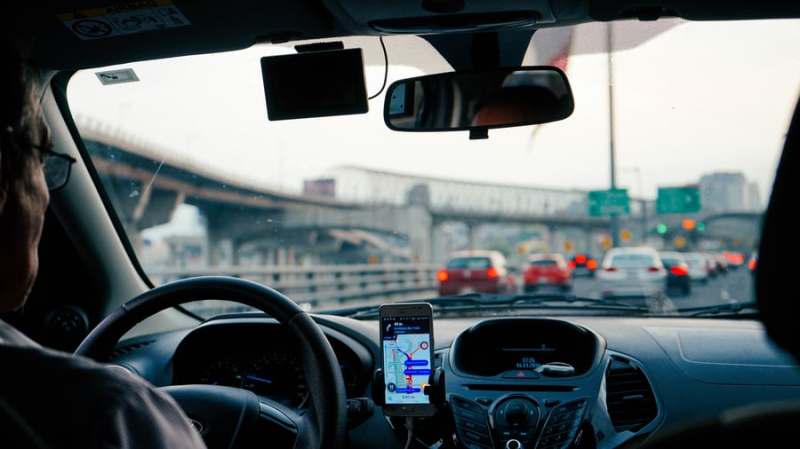California voted to classify rideshare drivers as independent contractors, likely keep the existing ban on affirmative action in place and restore voting rights for former felons on Election Day. Aside from the two ballot propositions known to have succeeded, three failed and seven are yet to be called as of early Wednesday morning.
Put to the test amid a pandemic that has decimated the state budget and a national reckoning over racial injustice, the remaining propositions cover a wide array of topics. They range from establishing a $5.5 billion state bond that extends funding for the state’s stem cell research institute and bringing back voting rights for 50,000 Californians on parole, to allowing a select group of 17-year-old individuals to vote in primary and special elections, which failed.
Proposition 22, which would classify drivers for rideshare apps as independent contractors and not employees, is on track to pass. Drivers will not receive overtime pay, healthcare, paid sick leave or unemployment insurance. To amend this proposition now requires a seven-eighths vote in each chamber of the California State Legislature, as well as the governor’s signature.
“What is being done to the drivers is a travesty, denying them all the basic rights that employees have,” said Stanford Law professor emeritus William B. Gould IV.
While campaigning for Proposition 22, rideshare companies invested heavily in advertisements, eventually strong-arming the other side’s $20 million in contributions — a tenth of what they were up against. Much of the $203 million of support for the proposition came from Uber, Lyft and Doordash. Labor advocates have strongly opposed the proposition, framing the measure as an exemption for multibillion-dollar companies from contributing to social safety net programs.
Rideshare companies maintain that classifying drivers as independent contractors is key to keeping prices low and allowing for greater flexibility for employees.
Gould said that the companies have “turned the proposition concept on its head,” having spent a record amount of money spent to promote the proposition. He contrasted the intent of propositions in California to create “a chance for the little guy to protect himself or herself” with “deals that were being made between the legislature and big-money interests.”
One of the most closely watched measures was Proposition 16, which would reverse California’s 1996 ban on affirmative action and is supported by Democratic vice presidential nominee Kamala Harris. The proposition would allow public colleges and other entities to consider race when making admissions or hiring decisions. 55.8% of voters have said no so far.
“Affirmative action” as a term first came about in the 1960s as a progressive attempt to correct societal racism in education and employment. Following a 1978 Supreme Court case, some began to see it as a discriminatory action against white applicants, rather than a benefit for underrepresented communities.
After the ban in 1996, the enrollment of students into the University of California (UC) system from Latinx, Black and Indigenous communities dropped, as well as the number of applicants, according to education professor Anthony Lising Antonio. This phenomenon has increased the discrepancy between these groups’ enrollment in UC and their greater representation in the population.
In the private sector, Proposition 15’s attempt to affect commercial property taxing failed. Instead of paying an amount based on the original market value of a property, Proposition 15 aimed to have owners pay based on the property’s present market value, provided that value is above $3 million.
While supported by Gov. Gavin Newsom (D) and several teachers’ unions, the proposition was unpopular, with many business groups opposing the financial toll during an economic crisis. Even though homeowners still must pay based on present market value, business owners’ taxes will continue to be determined by the purchased price, with more moderate annual increases for inflation.
Proposition 24 puts even more power in the hands of consumers, modifying the law so that businesses can only hold onto data for as long as necessary, and businesses’ access to sensitive data such as exact location, race and religious affiliation may be limited.
Following this trend of ownership, in January of this year, the state’s most rigorous data privacy law so far went into effect: the California Consumer Privacy Act. The legislation allows digital users to opt out of the sale of their personal information and requires companies to specify what data they are collecting.
Contact Matthew Turk at mjturk ‘at’ stanford.edu.
